
GOLD Neonatal Conference 2021
GOLD Neonatal provides an unique educational opportunity for healthcare professionals caring for high-risk neonates. When working with this vulnerable population and their families, it's essential to stay up to date with the new research and shifts in thinking and understanding in the neonatal field.
This conference lecture pack is full of important clinical topics such as COVID in the NICU, IV lipid emulsions, the role of the nurse in the end of life decision making process, pain management, caffeine use in neonates, feeding behaviors in the opioid exposed infant, infants with swallowing challenges and so much more.
Originally offered at our GOLD Neonatal Online Conference 2021.
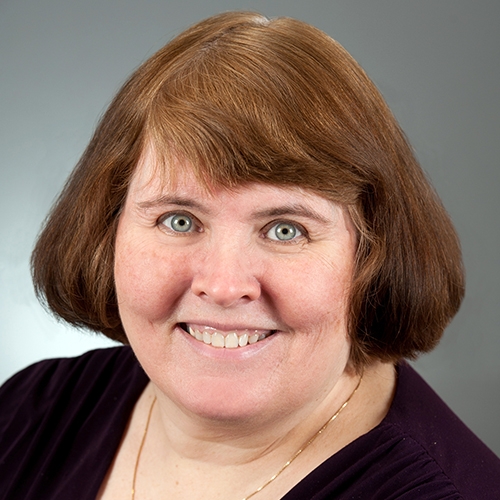

Kathy Gura is the manager for Pharmacy Clinical Research Program and a clinical pharmacist with the Clinical Nutrition Service in the Division of GI/Nutrition at Boston Children's Hospital. She is also an Assistant Professor of Pediatrics at Harvard Medical School and an adjunct member of the faculty at MCPHS University, Northeastern University and the University of Connecticut. She is a member of the Center for Advanced Intestinal Rehabilitation and the Home PN Program at Boston Children’s Hospital. Dr. Gura received her BS and Pharm.D from the Massachusetts College of Pharmacy and Health Sciences in Boston. Certified as a Nutritional Support Pharmacist, Dr. Gura is a Fellow of the ASHP, ASPEN, PPA and MSHP. She was recently named the 2020 Nutrition Champion by the American Society for Parenteral and Enteral Nutrition. Dr. Gura is the author of numerous book chapters on pediatric nutrition and has written more than 130 peer reviewed on topics such as the intestinal failure associated liver disease, clinical practice guidelines for parenteral nutrition, and the use of parenteral nutrition in the neonate. She currently serves as an associate editor for JPEN.
1: Describe how phytosterol and vitamin E content can influence how a neonate tolerates an intravenous lipid emulsion.
2: Describe how alternative lipid emulsions may impact neonatal and infant growth.
3: Describe how dosing varies based on the type of lipid emulsion product.
Intravenous lipid emulsions (ILE) are essential for promoting optimal nutrition in the neonatal intensive care unit. However, long-term use of a pure soybean lipid emulsion has been associated with potentially fatal complications such as intestinal failure associated liver disease and fat overload syndrome. In the past decade, the science of lipid emulsions has progressed with a focus on optimizing nutrition and prevention of disease, Concerns on the use of these different oil sources on essential fatty acid status and growth will be discussed. By providing an overview of the current literature, this lecture will provide a general overview of the currently available ILE and how differences in composition may impact the neonate.
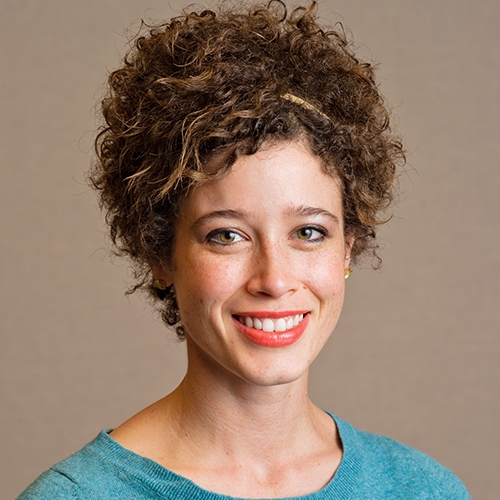

Chesney Willis, MHS, CCC-SLP, IBCLC is a certified speech language pathologist and lactation consultant from the University of Missouri Women’s and Children’s hospital. She earned her master of health sciences degree from the University of Missouri in 2008 and obtained her IBCLC in 2017. Chesney has over 13 years of experience working across outpatient rehabilitation, home-health, inpatient care for pediatrics and neonates in level II and III NICU settings. Clinical expertise includes evaluation and treatment of disordered swallowing and feeding in special neonate populations. Experience includes the development and dissemination of education for best feeding practices for late preterm and preterm infants to families and inter-disciplinary health care providers. She is passionate about supporting mother-baby breastfeeding dyads with special feeding considerations from hospitalization through the transition to home.
1: Describe feeding development and the complications of prematurity.
2: Compare and contrast modifications at the breast to support best swallowing practices including positioning, supply management to ensure flow rate safety, and evaluation of infants’ cues to guide feeding trials.
3: Identify community support strategies to aid healthy feeding development as infants transition to home.
In this session, learners will explore the transition from gavage to breastfeeding in the NICU from the perspective of a premature infant. Babies born prematurely or with special needs typically develop safe feeding and swallowing at a slower rate. Early coordination of the swallow may be appreciated between 32 and 34 weeks gestation, with variability depending on degree of prematurity and underlying health conditions. Early breastfeeding success depends on identifying stress cues during feeding, teaching modifications, and keeping a flexible, developmentally sensitive care plan. Participants will learn to recognize bedside clinical signs of aspiration with special discussion of cough maturation and its long-term clinical implications.
Providers will be encouraged to support families from early antepartum with imminent preterm delivery, postpartum during the “golden hour” for an exclusively pumping mom, and introduction to Mother’s milk with early swallowing at bedside in the NICU. Working closely with lactation and therapy services ensures appropriate education and successful developmental expectations for the individualized NICU infant. Lastly, as families prepare for home, the importance of an inter-disciplinary team approach with appropriate discharge recommendations and community supports will be highlighted.


Dr. Marsha Campbell-Yeo, a neonatal nurse practitioner and clinician scientist, is a Full Professor at the School of Nursing, Faculty of Health, Dalhousie University and holds cross appointments in the Department of Pediatrics, and Psychology and Neuroscience. Her Canada Foundation of Innovation funded research lab, MOM-LINC (Mechanisms, Outcome and Mobilization of Maternally-Led Interventions to Improve Newborn Care) is located at the IWK Health Centre. She primarily holds grants examining interventions to improve outcomes of medically at-risk newborns specifically related to pain, stress, and neurodevelopment as well as novel knowledge synthesis and dissemination methods, and digital e-heath interventions aimed at enhancing parental engagement.
She has been recognized for her contributions to the field via numerous awards. She has received an Honorary Doctorate from the Faculty of Medicine and Science from Orebro University, Sweden, and invited as a member of the Royal Society of Canada's College of New Scholars, Artists and Scientists, the recipient of the Inaugural Dalhousie University President's Award for research excellence, was named one of 150 Nurses championing innovation in health for Canada by the Canadian Nurses Association to mark the 150th anniversary of Confederation, a Canadian Institute of Health Research New Investigator Awardee, the Canadian Pain Society 2015 Early Career Awardee, and a Career Development Awardee of the Canadian Child Health Clinician Scientist Program. She is President-Elect of the Pain in Childhood Special Interest Group of the International Association for the Study of Pain, an Executive member of the Council of International Neonatal Nurses, and the Inaugural Chair of the Canadian Premature Babies Foundation Scientific Advisory Committee. Follow her on Twitter @DrMCampbellYeo
Topic: Why Are We Still Hurting Babies: Provider And Parent-led Interventions For The Treatment And Prevention Of Procedural Pain - [View Abstract]
1: Describe the incidence and consequences of exposure to untreated pain in early life. 2: Determine the current most effective ways to prevent and treat procedural pain in neonates. 3: Describe at least three strategies to engage parents more fully in neonatal pain management.
After decades of healthcare providers not recognizing newborn infants’ capacity to feel pain and the associated adverse outcomes, we now know that current evidence suggests that repeated procedural pain contributes to long-term changes in stress regulation and brain development in vulnerable preterm infants, after accounting for associated clinical confounders. Many medications are often not effective for the most commonly performed painful procedures, and their repeated and frequent use may have potential short and long-term adverse effects. Recent research has thus focused on finding non-pharmacological interventions or sweet tasting solutions as a substitute to pharmacologic treatments, or as a means to reduce the drug-doses needed for optimal analgesia associated with procedural pain. Several of these interventions involve parents, e.g., skin-to-skin care, breastfeeding, or facilitated tucking. Despite this knowledge, clinicians often struggle with incorporating these strategies into everyday practice. Moreover, most parents and many providers remain unaware of the powerful benefits of integrating parents as active participants in newborn pain management. This presenatation will cover interventions to address the treatment and prevention of procedural pain.


Dr. Kelly McGlothen-Bell is an Assistant Professor at UT Health San Antonio, School of Nursing. As a nurse scientist, Dr. McGlothen-Bell is dedicated to understanding and resolving perinatal-infant health disparities in underrepresented groups, particularly among mother-infant dyads impacted by substance use disorders and preterm births. Dr. McGlothen-Bell uses interdisciplinary research, bio-behavioral methodologies, and community-engaged strategies to define and explore health priorities that can be remedied through culturally appropriate and sustainable health solutions. Her program of science focuses on understanding the relationship between infant feeding behaviors and readiness in high-risk infants and attunement between the primary caregiver and child during infancy and toddlerhood. The culmination of these findings contributes to the development of evidence-based interventions geared toward improving parental engagement and pediatric feeding success in marginalized populations. Dr. McGlothen-Bell has published numerous peer-reviewed articles related to developmental strategies for high-risk infants. She has also presented her work at conferences nationally and internationally. Dr. McGlothen-Bell has received numerous awards to include the 2019 National Association of Neonatal Nurses (NANN) Mentee/Mentor Grant Award. She was also selected as a 2019-2020 Academy Jonas Nurse Policy Scholar.
Topic: Feeding Behaviors in the Opioid Exposed Infant - [View Abstract]
1: Describe multi-level challenges that influence the infant feeding experiences and outcomes of infants with prenatal opioid exposure.
2: Discuss signs/symptoms of distress and problematic feeding behavior in infants with prenatal opioid exposure.
3: Identify at least 3 tools or observation strategies used to identify problematic feeding behaviors and risk in infants with prenatal opioid exposure.
As national rates of opioid use disorder continue to rise, the resulting impact on pregnant and parenting women and their children is immense. Severity of the central nervous system and gastrointestinal irritability in infants following prenatal opioid exposure, can affect their feeding behaviors and subsequently the caregiver-infant relationship. Feeding is a regulatory process that is difficult to characterize in prenatally opioid-exposed infants. As a result, caregivers, most often the mother, may struggle with feeding their infants. The complexity of an opioid use disorder for the mother and the subsequent opioid withdrawal of the infant may impede a mother’s ability to engage her irritable or sleepy baby.
Despite the known importance of feeding as a growth-fostering process, the evidence is lacking to guide recommendations for feeding management in this at-risk population. Evidence-based observational tools specific to the target population are warranted. Furthermore, feeding interactions between opioid- exposed infants and their caregivers need appropriate assessment and intervention to not only assist with the infant’s regulation and development of feeding skills, but also to support a nurturing feeding relationship. This presentation will shed new light on this important issue in infant feeding and highlight emerging research in the area.
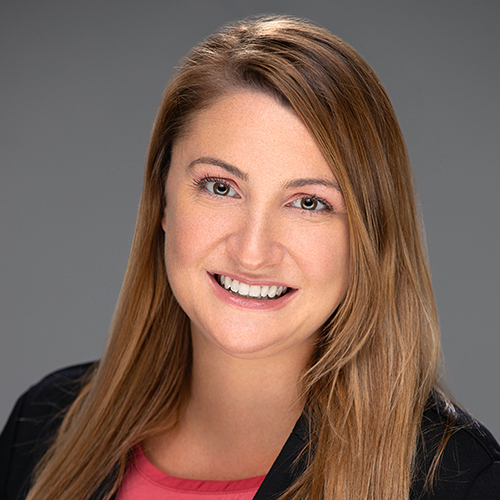

Dr. Jennifer Barnes is the Neonatal Intensive Care Clinical Pharmacy Specialist at Levine Children’s Hospital in Charlotte, NC. She has over 10 years of experience within the field. Dr. Barnes received her bachelor’s degree at Virginia Tech and her Doctor of Pharmacy at Virginia Commonwealth University’s Medical College of Virginia. She completed her pharmacy practice residency at Alamance Regional Medical Center- Cone Health. Dr. Barnes is board certified in pediatric pharmacotherapy. She is also an active member of the Pediatric Pharmacy Association (PPA) and is currently serving as the neonatology committee chair. Dr. Barnes serves as a clinical assistant professor for pharmacy advanced practice rotations for University of North Carolina, University of South Carolina, Wingate University and High Point University. Her current research areas of interest include the role of diuretics in bronchopulmonary dysplasia treatment and antibiotic stewardship for late-onset sepsis amongst other topics.
Topic: Get the LOW Down on Neonatal Hypotension - [View Abstract]
Topic: Starbucks for Babies? Caffeine Use in Neonates - [View Abstract]
1. Summarize the mechanism of action of caffeine and uses in the neonatal population.
2. Discuss dosing and duration strategies and the supporting literature.
3. Review potential adverse drug reactions from caffeine and monitoring parameters.
Caffeine is one of the most prescribed medications within the neonatal intensive care unit (NICU). This presentation will summarize the current understanding of caffeine therapy in neonates including the various indications. Caffeine is the medication of choice for apnea of prematurity (AOP) however it has been shown to be beneficial in several other disease states and conditions. Despite the widespread use of caffeine, there is not consensus on optimal dosing regimen or timing. We will review the supporting literature for the nuances of caffeine dosing regimens and schedules. While caffeine is generally considered a safe medication, we will also discuss potential side effects for monitoring. After this presentation, the audience will have a full picture of the pros and cons of this ubiquitous medication in our NICU population.
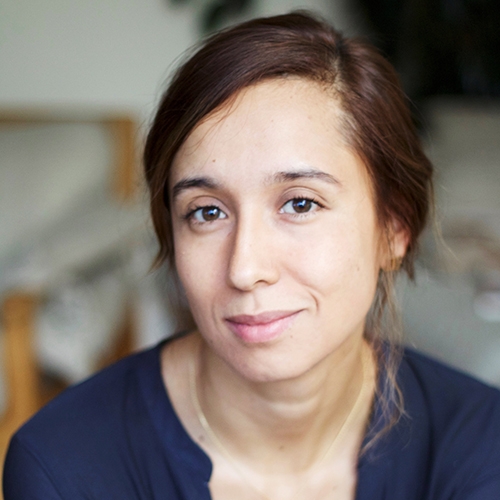

Dr. Natalia Varela is a professor at the Externado University of Colombia. She directs the family and children research department. Dr. Natalia´s research experience on child development involved an interdisciplinary approach that enabled her to acquire tools working on an array of projects involving at-risk children and families around the world (Colombia, Canada, India, Vietnam, Indonesia, Burundi). Having worked with United Nations agencies and international NGOs, Dr. Natalia has gained expertise in academic research, as well as international development. Dr. Natalia works closely with the Kangaroo Foundation in Colombia on interesting research about premature birth and fatherhood. She holds a Ph.D. in Psychology from Laval University in Canada.
1. Participants will be able to understand the importance of the father on child development.
2. Participants will be able to recognize better the overwhelming experience of premature birth and NICU for fathers.
3. Participants will be able to describe the impact of skin-to-skin contact on the father and baby.
Over the past decades, researchers have established the importance of the father on child development. Research shows that when fathers are involved, child development is affected. Children show better cognitive skills, fewer aggressive interactions, and better performance in school. Research shows that the earlier the involvement, the better. Nonetheless, when the baby is born premature, this interaction is usually delayed as life is in danger and, the baby is placed in the NICU. Premature birth (≤ 37 weeks of gestation) is a sudden and overwhelming event for the whole family. Parents of premature babies experience high levels of stress, anxiety, and depression. Most studies and interventions are focused on babies and mothers, neglecting fathers. The Kangaroo mother care method in which the baby must be placed in skin-to-skin position as long and much as possible has transformed not only the NICU practices but also the involvement of family members (especially fathers) in the care of premature babies. We will explore the experiences and impact of skin to skin contact on fathers in different countries and cultures.


Lisa Leppard has worked within a Neonatal Tertiary Unit for 30 years in Clinical, Management, Network and National roles. Her current role, which she has undertaken for 19 years, has been developing the post of Clinical/Family Support Lead Nurse within a tertiary Neonatal Unit, utilising clinical evidence, audit, data and parent/carer feedback. She is responsible for the completion of national databases i.e. MBRRACE & PMRT. Initially this role was part-time but she has developed it, making it into a full-time role and leading a team of 3. The team also includes a clinical psychologist and to gain funding for this role, she worked collaboratively on the business case as part of the Neonatal Parents Mental Health Framework. The team ensures that Family Centred Care remains integral to the unit's ethos & that the parents/carers are given a voice and are well supported. Until recently, she was also the Safeguarding Lead for the Neonatal Unit and completed Level 3 training in Safeguarding. She has extensive experience with audit, working with all levels of the multidisciplinary teams. She was the lead for the BLISS Accreditation of the UHS Neonatal Unit, which was the first unit to be awarded Family Friendly Accreditation within the UK. She was recently part of the BLISS working party to review and update the BLISS audit tool and has also been a Professional BLISS Baby Charter Assessor. She has been the Thames Valley and Wessex Neonatal Network Lead Nurse for Palliative Care for 6 years. To facilitate standardisation of palliative care across the Network, she co-wrote the Palliative Care Pathway adopted and adapted in 2014 by TV&W NNW. She recently facilitated the review and update of the Palliative Care Pathway within the Network. In 2017, she contributed to the review and re-launch of the Together For Short Lives Neonatal Palliative Care Pathway. She is a chapter co-author in the new Palliative Care Text Book for Neonatal Nurses. She co-wrote the chapter on the Nurse’s role in the decision making process. (Neonatal Palliative Care for Nurses. Springer, 2020)
As lead of the Family Support Team, Lisa has developed a link with the Fetal Medicine Team working with families where a life-limiting diagnosis has been made to both support and plan the care of the parents and their baby at delivery and beyond, as well as completing ACP’s and discussing symptom management with parents and medical colleagues. This process includes acting as an advocate for the baby and their families, and always listening to their individual needs. She was part of the team to adapt a Perinatal Palliative Care Pathway for the Wessex Region. She has also worked collaboratively with the Multidisciplinary Paediatric teams to develop pathways to ensure the transition of care of neonates to Paediatrics is seamless & the parents/carers are well supported in the process.
Lisa has been seconded to develop the role of Neonatal Palliative Care Specialist Nurse at Naomi House, a local children’s hospice, raising the profile of hospice care being accessible to neonatal families and staff. She has developed a referral pathway and has visited all the units in the Wessex region, establishing contacts & promoting this as a choice to be offered to parents. She has undertaken the UNICEF Breast Feeding Training course and supported the Breast Feeding Lead Nurse with working towards the Baby Friendly Initiative within her unit. She completed a Counselling Diploma in 2016 and qualified as a Civil Mediator in 2018. Both of these qualifications have enhanced her communication and listening skills when working with families and professionals at all levels. She has a proven track record of managing and defusing challenging situations. She has developed Parental Support Groups and initiated a Father’s Group on the Neonatal Unit.
1. Facilitate parental support in decision making.
2. Assist families with confidence in becoming part of the MDT and having a voice.
3.Describe how to adequately access support.
End of life care in the NICU is challenging for parents and staff alike. Nurses are a vital part of the NICU team and during end of life care they facilitate support and information to parents as well as colleagues and provide regular assessments of the baby. Accurate and consistent information is vital for the parents to feel empowered to engage fully. This part of a neonatal nurse's role can be emotionally challenging, and this is an important point to highlight. This presentation aims to evoke discussion around the nurses role in the decision making process when moving to end of life care of a baby and includes measures to ensure that staff feel involved and supported throughout the process.
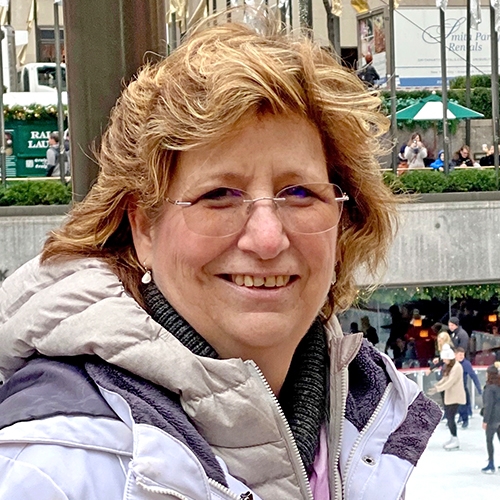

Dr. Prescott is currently and Assistant Professor at the University of South Florida and the Assistant Director of the College of Nursing's Biobehavioral Lab. Her research centers around the maternal and neonatal microbiota and it's interaction with host immunity to impact growth and metabolism. She has been a neonatal nurse practitioner since 2010, completed her PhD at the University of Virginia in partnership with the National Institutes of Health. Her postdoctoral work at the National Cancer Institute assessed perinatal antibiotics on the microbiome of mothers and their offspring. She has written several educational and review articles addressing the management of neonates with cardiovascular disease.
1. Participants will be able recognize the circulatory changes that occur during the first days of life.
2. Participants will understand the mechanisms of neonatal shock that occur from incidents at or shortly after delivery.
3. Participants will recognize the critical congenital heart diseases (CCHD) and their implications for neonates.
4. Participants will recognize common neonatal arrhythmias.
5. Symptoms of non-critical congenital heart disease.
Nurses and providers often encounter neonates with prenatally diagnosed or undiagnosed cardiovascular disease in the delivery room, well-baby nursery, or neonatal intensive care unit. Distinguishing between respiratory and cardiovascular disease is imperative for proper management. In this talk, I will review normal fetal, neonatal, and transitional circulation, and critical congenital heart diseases, their early presentation and initial treatment strategies. I will also discuss the cardiovascular implications and management strategies of common delivery complications and of prematurity.


Mohan Pammi is a professor and neonatologist at Baylor College of Medicine. He was the medical director for a large NICU at Texas Children's Hospital for more than 4 years. His research interests are neonatal infections, microbiome and evidence-based medicine. He is currently funded by National Institute Health for clinical studies on the perinatal microbiome in preterm neonates.
1. Describe the risks of vertical transmission of covid 19.
2. Define neonatal covid-19 disease.
3. List changes in NICU workflow including daily rounding and parent visitations associated with covid-19.
Covid-19 was declared a pandemic by the WHO in March 2020. As the medical community dealt with the implications of rapid spread and high mortality and morbidity of the infection, many changes focused on infection control became paramount in the neonatal intensive care unit including attendance at delivery. We will review the manifestations of covid infection in neonates, risks of vertical and horizontal transmission, its impact on the delivery of neonatal care including visitation policies, restrictions on parental visitations, personal protective wear, social distancing, virtual rounding, breastfeeding, universal surveillance and changes in workflow and costs in the NICU.


Bernadette Mazurek Melnyk is Vice President for Health Promotion, University Chief Wellness Officer, Dean and Helene Fuld Health Trust Professor of Evidence-based Practice, the College of Nursing, Professor of Pediatrics and Psychiatry at the College of Medicine and Executive Director of the Helene Fuld Health Trust National Institute for Evidence-based Practice at The Ohio State University. Dr. Melnyk is recognized nationally and globally for her clinical knowledge, expertise in evidence-based practice, mental health, and intervention research as well as her innovative approaches to health and wellness. Dr. Melnyk was the first Chief Wellness Officer appointed at a University in the U.S. She founded and is the current president of the National Consortium for Building Healthy Academic Communities. Dr. Melnyk is an elected member of the National Academy of Medicine, the American Academy of Nursing, the National Academies of Practice, and the American Association of Nurse Practitioners. She is a member of the board of directors for the National Forum for Heart Disease and Stroke Prevention. Dr. Melnyk has over $33 million dollars of sponsored funding from federal agencies and foundations as a PI, is an editor of seven books, and has authored over 450 publications. As a member of the National Academy of Medicine’s Action Collaborative on Clinician Well-being and Resilience, she is working to address the national crisis of healthcare provider burnout.
1. Describe the current state of
translating research/evidence-based
interventions into clinical practice
settings.
2. Describe barriers and facilitators to
translating research evidence into
practice.
3. Discuss how to build an impactful
program of research or evidence based
quality improvement projects
with the “So What” outcome factor.
4. Describe the evidence-based COPE
programs that have produced
positive outcomes for vulnerable
infants, children, teens & parents and
scaled globally.
5. List the specific components of the
ARCC model that facilitate speeding
the translation of research into
practice.
This presentation will describe the state of translating research and evidence-based interventions into real world clinical settings to improve outcomes. Barriers and facilitators will be discussed. The “so what” outcome as a critical factor in speeding the translation of evidence based interventions into clinical settings will be highlighted. The presentation also will describe two successful programs of research as examples of success in scaling evidence-based interventions into practice. The Advancing Research and Clinical practice through close Collaboration (ARCC) Model will be emphasized as a successful framework for the rapid translation of evidence into practice to improve outcomes.


Dr. Jacqueline Hoffman has over 37 years in the field of neonatal health care. She completed her Masters in Perinatal/Neonatal Health at the State University of StonyBrook and her DNP at the University of Alabama, Birmingham. She was previously the NNP Track Coordinator and Clinical Faculty at UAB and the University of Florida. She is currently an Assistant Professor at Rush University in Chicago in the DNP-NNP track. She has a clinical practice with Oregon Health & Science University (OHSU) and is the lead NNP at PeaceHealth Southwest in Vancouver, Washington. She precepts medical (family and pediatric residents) and NNP students in her clinical practice. She was part of the original Council for the National Association of Neonatal Nurse Practitioners (NANNP), is a Member-At-Large for the Florida Association of Neonatal Nurse Practitioners (FANNP), and is a member of the Academy of Neonatal Nurses, American Academy of Pediatrics (AAP) Perinatal Section, American Association of Nurse Practitioners (AANP), and member of the Association of Women's Health, Obstetric and Neonatal Nursing (AWHONN). She has authored several book chapters in textbooks targeted for the NNP. She is a nationally known speaker as well as has presented several poster presentations on Case Studies.
1. Contrast differences between minor and major congenital anomalies.
2. Discuss the approach to the infant with dysmorphic features.
3. Identify the six common classifications of congenital anomalies based on findings.
4. Contrast the various prenatal and postnatal genetic testing options.
5. Discuss findings associated with common chromosomal syndromes, sequences or associations.
6. Discuss communication with the family for an infant with suspected or known congenital anomalies.
Throughout pregnancy, parents begin dreaming of their perfect, healthy baby. What happens when their dreams appear to be shattered by an infant that has obvious dysmorphic features and may have long-term problems? This session will provide an overview of common genetic terms, discussion of classifications of congenital anomalies with common findings, discussion of cytogenetic evaluation, and family communication.
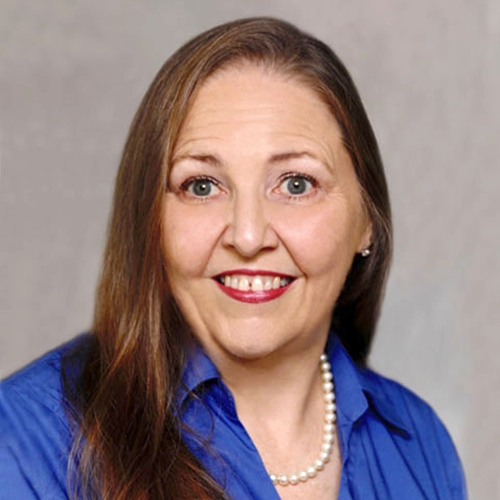

Webra has over 40 years of experience in neonatal critical care with over 25 in neonatal transport. Currently she is the coordinator for the Maryland Regional Neonatal Transport Program, a private joint venture between University of Maryland Medical Center and Johns Hopkins Hospital. Her position includes administrative and clinical oversight to the transport program and outreach education to all referral hospitals. Webra has held leadership positions in National Association of Neonatal Nurses (NANN), the American Academy of Pediatrics (AAP) Section on Transport Medicine, Commission on Accreditation of Medical Transport Systems (CAMTS) and American Academy of Neonatal Nursing (ANN). She is author of various articles, contributing author to books and publications. She has been a Content Reviewer of the 2006 and 2013 S.T.A.B.L.E. Program Learner Manuals, S.T.A.B.L.E. Program Instructor and Lead Instructor Trainer. Dr. Price-Douglas is an experienced, knowledgeable and well-respected presenter at national/ international meetings and has been on various planning committees/university faculty involved in educational activities including didactic, interactive and simulation programs. She holds certification as a neonatal nurse practitioner and lactation consultant. Webra is on the RISE team (Resilience in Stressful Events) at Johns Hopkins. She is interested how stressful/critical incidents (maternal/neonatal death/ stabilization attempts) impact the nursing/medical staff. She has completed formal education on integrative medicine strategies to support families and health care providers and promote resiliency.
1. Describe at least one aspect of neonatal stabilization/transport that is based on older evidence.
2. Discuss at least two strategies related to neonatal stabilization/transport that may be impacted by recent evidence.
3. Identify some aspects of neonatal stabilization/transport that are often forgotten that can jeopardize efforts/outcome.
The goal of neonatal stabilization/transport is to provide therapies and services to reduce mortality and morbidity. This presentation will consist of the introduction of new science, review older material and some common sense information that is often forgotten. Neonatal mortality and morbidity data and new evidence guides our practice but the collection and dissemination of that information can be challenging. As respiratory management options expand, keeping transport providers skilled in airway management/intubation and new modalities can be difficult. Evidence regarding brain development, Hypoxic Ischemic Encephalopathy (HIE) identification and management and glucose metabolism and implications for long term development continues to evolve. The Golden Hour approach to management is so much more than just time and preterm infants. There is old and new information to offer guidance in the management of suspected sepsis in the neonate. Stabilization priorities and how to begin and continue will be discussed. Safety must be reflected in every stabilization in every setting.
Accreditation
CERPs - Continuing Education Recognition Points
GOLD Conferences has been designated as a Long Term Provider of CERPs by the IBLCE--Approval #CLT114-07. This program is approved for 12.5 CERPs (10.5 R-CERPs) (2 L-CERPs).
If you have already participated in this program, you are not eligible to receive additional credits for viewing it again. Please send us an email to [email protected] if you have any questions.
Additional Details
Viewing Access Time: 8 Weeks
Tags / Categories
(IBCLC) Education and Communication, (IBCLC) Infant, (IBCLC) Infant, (IBCLC) Pathology, (IBCLC) Pharmacology and Toxicology, (IBCLC) Psychology, Sociology, and Anthropology, (IBCLC) Research, (IBCLC) Techniques, Breastfeeding Strategies for the Preterm Infant, Evidence Based Care in Nicu, Family-Centered Care, Hospice & Palliative Care, Neonatal Abstinence Syndrome, Neonatal Care & COVID, Neonatal Illness, Neonatal Screening, Neonatal Substance Exposure, Neonatal Transport, NICU Nutrition & Feeding, Pain Management in the NICU, Parents in the NICU, Pharmacology in the NICU
How much time do I have to view the presentations?
- The viewing time will be specified for each product. When you purchase multiple items in your cart, the viewing time becomes CUMULATIVE. Ex. Lecture 1= 2 weeks and Lecture Pack 2 = 4 Weeks, you will have a total of 6 weeks viewing time for ALL the presentations made in that purchase.
- Time for viewing the talks begins once you purchase the product. For Live Webinars & Symposiums, the viewing period begins from when the live event takes place. Presentations can be accessed 24/7 and can be viewed as many times as you like during the viewing period.
What are bundled lectures?
- Presentations may be available individually or via a bundled package. Bundled lectures are a set of lectures that have been put together based on a specific category or topic. Some lectures will be available in both individual and lecture form, whereas others will be available only via a bundled lecture pack.
Will there be Handouts?
- YES! Each lecture comes with a PDF handout provided by the Speaker.
Some lectures include a Q&A, what does that mean?
- During our online conferences, presentations that occur live are also followed by a short 15 minute Question & Answer Session. The Speaker addresses questions that were posted by Delegates during the presentation. We include the recording of these Q&A Sessions as a bonus for you.
How can I receive a Certificate?
- If this presentation offers a certificate, once you are done viewing the lecture or the lectures within a bundle, submit your attendance record in order to be able to download your certificate. You'll be able to see which credits are offered for the lecture by hovering over the "Credits Available" link within the "Speakers & Topics" tab.
Professionals that selected this package also viewed

|
|

|










